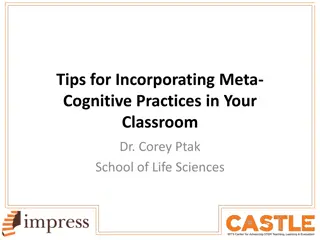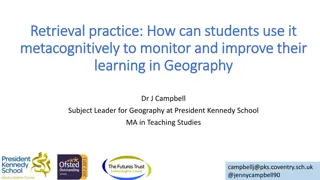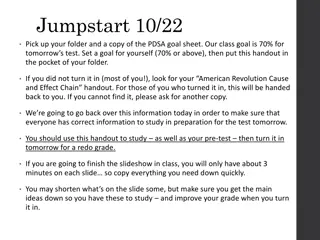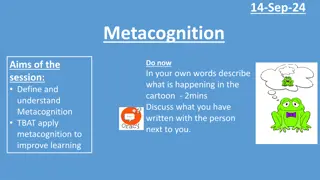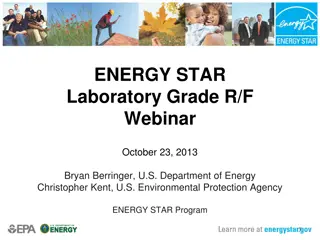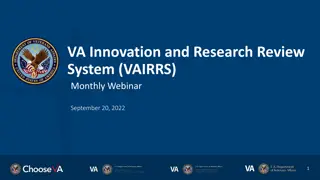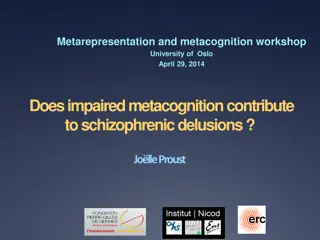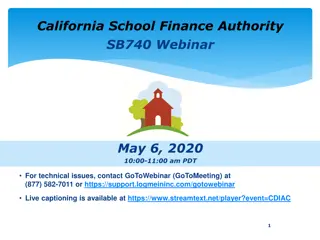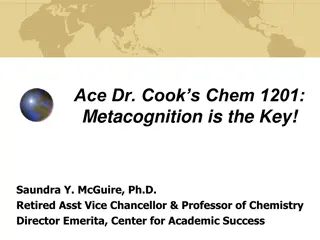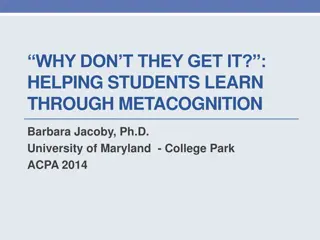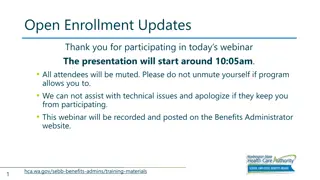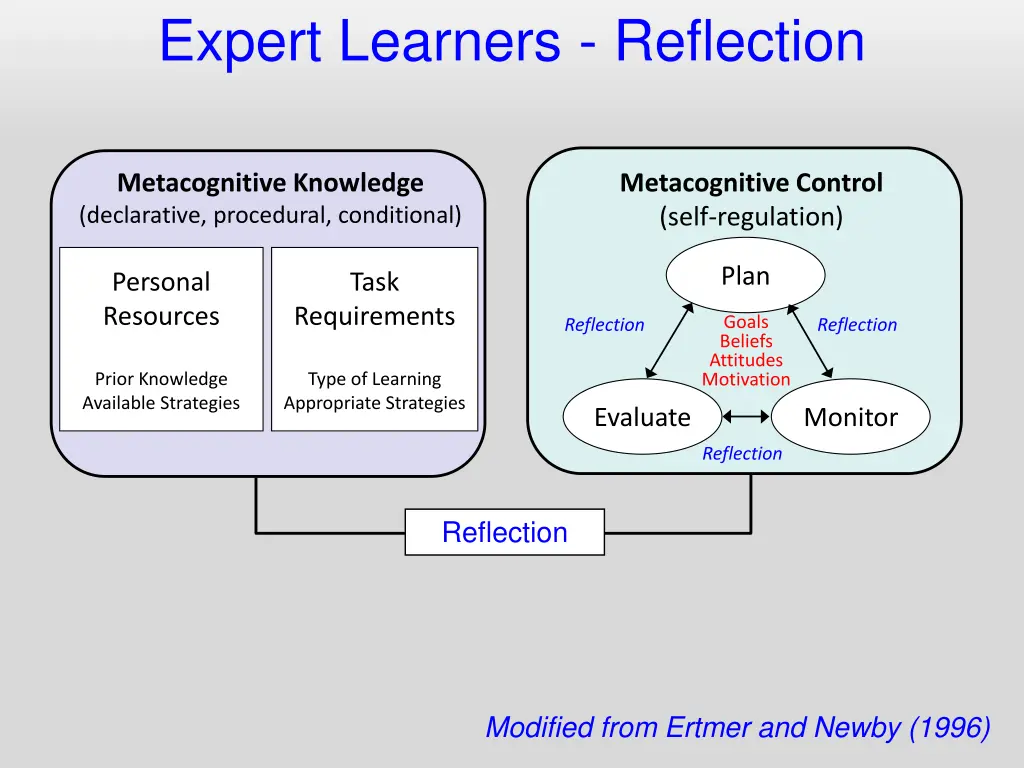
Enhancing Learning Through Reflective Practices
Explore the importance of metacognitive knowledge and self-regulation in learning, reflecting on knowledge survey items, reading reflections, and exam wrappers. Engage in planning, goal-setting activities, and reflecting on learning strategies for effective academic growth.
Download Presentation

Please find below an Image/Link to download the presentation.
The content on the website is provided AS IS for your information and personal use only. It may not be sold, licensed, or shared on other websites without obtaining consent from the author. If you encounter any issues during the download, it is possible that the publisher has removed the file from their server.
You are allowed to download the files provided on this website for personal or commercial use, subject to the condition that they are used lawfully. All files are the property of their respective owners.
The content on the website is provided AS IS for your information and personal use only. It may not be sold, licensed, or shared on other websites without obtaining consent from the author.
E N D
Presentation Transcript
Expert Learners - Reflection Metacognitive Knowledge (declarative, procedural, conditional) Metacognitive Control (self-regulation) Plan Personal Resources Task Requirements Goals Beliefs Attitudes Motivation Reflection Reflection Prior Knowledge Available Strategies Type of Learning Appropriate Strategies Evaluate Monitor Reflection Reflection Modified from Ertmer and Newby (1996)
Example Knowledge Survey Items Items Level I can write a definition of a mineral? I can describe the cooling of a basaltic magma using Bowen s Reaction Series. Remember Understand I can calculate the relief of a region. Apply I can compare the generation of melts along convergent and divergent plate boundaries. Analyze I can evaluate three potential sites for a landfill. Evaluate I can construct a model of the origin of a suite of rocks from a layered intrusion. Create 1) I don't know the answer 2) I know some of answer 3) I know the answer
Reflecting on Learning What are the three most important things you have learned so far? How do they contribute insights in other areas? Describe the learning strategies that you are using. How might they be adapted for more effective learning? How does learning in this course relate to other courses? Other aspects of your life?
Reading and Reflecting Reading Reflections: Completed after each reading assignment Short responses to a few questions What is the main point of this reading? What did you find surprising? Why? What did you find confusing? Why? Submitted online before class Credit awarded for reflective submissions
Exam Wrapper 1. Exam Re-do 2. Reflection Self Evaluation Preparation Strategies Performance Analysis Planning Achacoso (2004) Lovett (2008)
Planning and Goal-Setting Journal Activity: Write a letter describing what you accomplished in this course. The letter should be dated for the end of the semester and written in the past tense. Tell me what you did, how you did it, and how your thinking and understanding changed. Begin your letter with: I earned an A in this course because The Art of Possibility (Zander and Zander, 2000)
Reflection & Learning Dimension Description Minimal thought and engagement; memorization is emphasized; correlated with surface learning; tasks treated as unrelated activities; an attitudinal state of non-reflectiveness Habitual Action Focuses on comprehension without relation to one s personal experience or other learning situations; book learning that is understanding-oriented; learning stays within boundaries of preexisting perspectives Understanding Learning is related to personal experience and other knowledge; involves challenging assumptions, seeking alternatives, identifying areas of improvement; active engagement; characteristic of deep approaches to learning Reflection Highest level of reflective learning; learners are aware of why they think, perceive, or act as they do; as a result, learner likely alters or changes firmly held personal beliefs and ways of thinking Critical or Intensive Reflection Modified from Mezirow (1991) and Kember et al. (2000)





